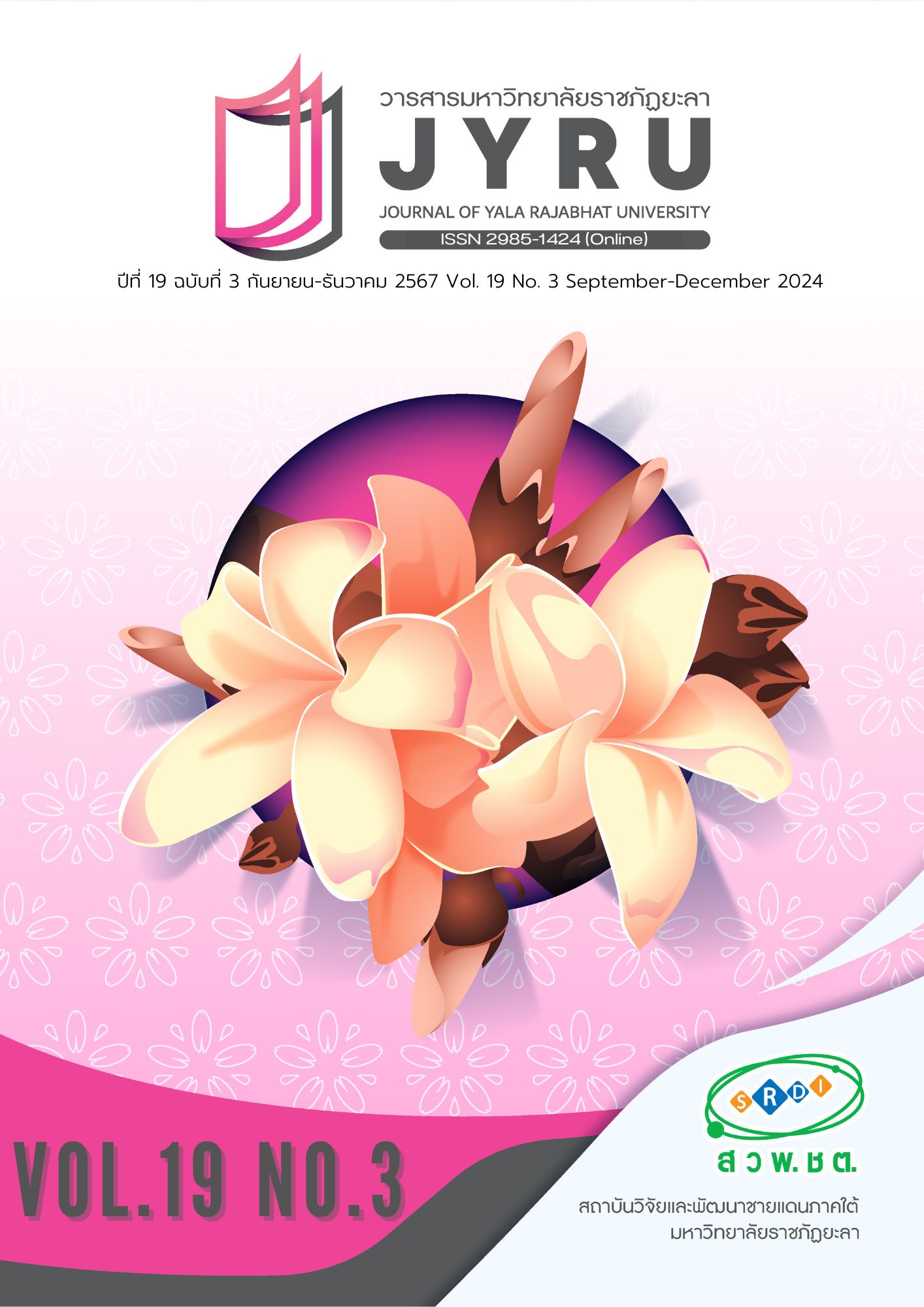Multicultural Classroom: Concerning the Knowledge Capital, Learning Management Methods and Self-Concepts of Dance Teachers
Main Article Content
Abstract
The role of dance teachers as cultural educators for students with diverse cultural backgrounds. The key factor is to develop teachers to move beyond traditional concepts and instructional methods that center themselves as the focal point of learning. Towards an approach that involves working collaboratively with students, with genuine empathy and respect for cultural differences. Nevertheless, dance teachers must ensure that they possess adequate knowledge, skills, and attitudes to manage education in a multicultural classroom effectively. The implementation must therefore consider three key perspectives, which include 1. Cultural knowledge capital refers to the understanding of one's own culture, the culture of the students, and the local culture of the educational institution. 2. Emphasizing diverse and interesting learning experiences. 2.1 Learner-centered instructional approaches that expand learning partnerships to include parents, teachers, and the community, ensuring a balanced and collaborative approach to education. Additionally, providing opportunities for students to independently participate in determining content, learning materials, and assess their learning independently. 2.2 Group-based instructional approaches aimed at fostering positive relationships within the classroom. It is a method that promotes student interaction within groups, with the teacher facilitating the development of both subject-specific skills and cross-cultural social skills simultaneously. And 2.3 Integrating content with an emphasis on incorporating material directly related to the students' cultures, while reducing content, materials, and discourse that marginalize subordinate cultures. Adding courses and extracurricular activities that promote a small-scale multicultural society within the school environment. Including creating spaces that allow students to express their cultural rights freely. And 3. Positive self-concept leading to fairness in
the classroom. It involves transforming teachers' biases toward subordinate cultures into an open and inclusive teaching approach for students with diverse cultural backgrounds in the classroom.
Article Details

This work is licensed under a Creative Commons Attribution-NonCommercial-NoDerivatives 4.0 International License.
Copyright Notice articles, information, images, etc. was published in this Journal of Yala Rajabhat University is a copyright of the journal Yala Rajabhat University. If any person or deparment wants to bring all or part of it for publish or take any action. Authorization is required in written form from the Journal of Yala Rajabhat University only.
References
Arpatthananon, T. (2020). Developing multicultural schools to enhance cultural competency through education for teachers and students in Thailand. Final research reports. Nakhon Pathom: Mahidol University. (in Thai)
Banks, J. A. (2007). Educating citizens in a multicultural society. New York: Teachers College Press.
Boontongleg, M. (2021). Developing a learning management model of Thai dance for global citizenship.doctoral dissertation. Rajamangala University of Technology Thanyaburi. (in Thai)
Boonyaphitak, S. (2017). The innovation of student teachers development to enhance teaching competency for learning to live together. Final research reports. Bangkok: National Research Council of Thailand and The Thailand Research Fund. (in Thai)
Nawarat, N. (2018). Multicultural education critical perspectives and praxis in schooling. Chiang Mai: ChiangMai University. (in Thai)
Nieto, S. (2007). School reform and student learning: A multicultural perspective. New Jersey: Wiley.
Nukunrot, J. (2023). A model for the development of competency in multicultural learning management of dance teachers in the southern area. doctoral dissertation. Srinakharinwirot University. (in Thai)
Princess Maha Chakri Sirindhorn Anthropology Centre. (2024). Information on ethnic groups in Thailand [Online]. Retrieved June 1, 2024, from: https://sac.gdcatalog.go.th/sr_Latn/dataset/ethnic-groups. (in Thai)
Scharmer, C. Otto. (2007). Theory – U leading from the future as it emerges. San Francisco: Berrett – Koehler Publishers.
Senge, P. (2017). Schools that learn: A fifth discipline fieldbook for educators, parents, and everyone who cares about education. Bangkok: National Library of Thailand.
Sirisakdamkeung, P. (2006). Multiculturalism. Bangkok: Silpakorn University. (in Thai)
Thomas, E. (2002). Culture and schooling: Building bridges between research, praxis and professionalism. New Jersey: John Wiley and sons.
Willis, I. (2000). Critical issue: Addressing literacy needs in culturally and diverse classrooms. north central regional educational lab. Illinois: Oakbrook Center.


